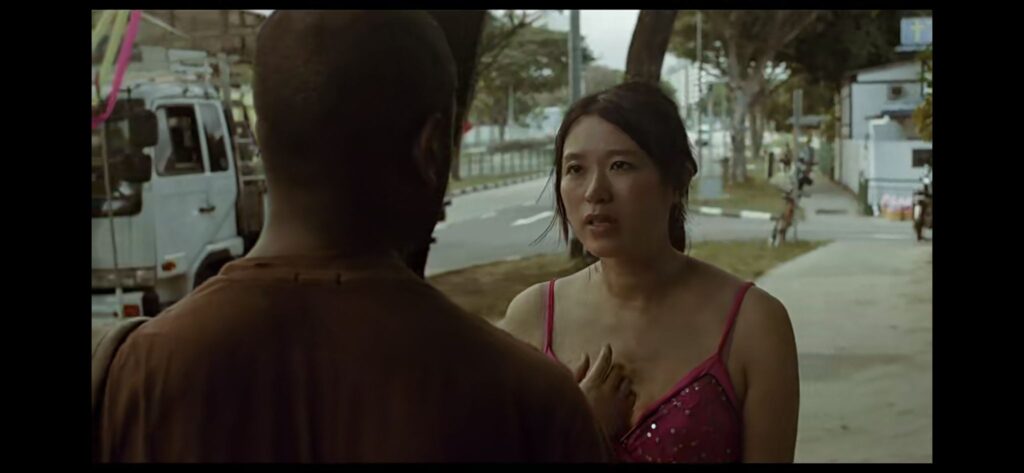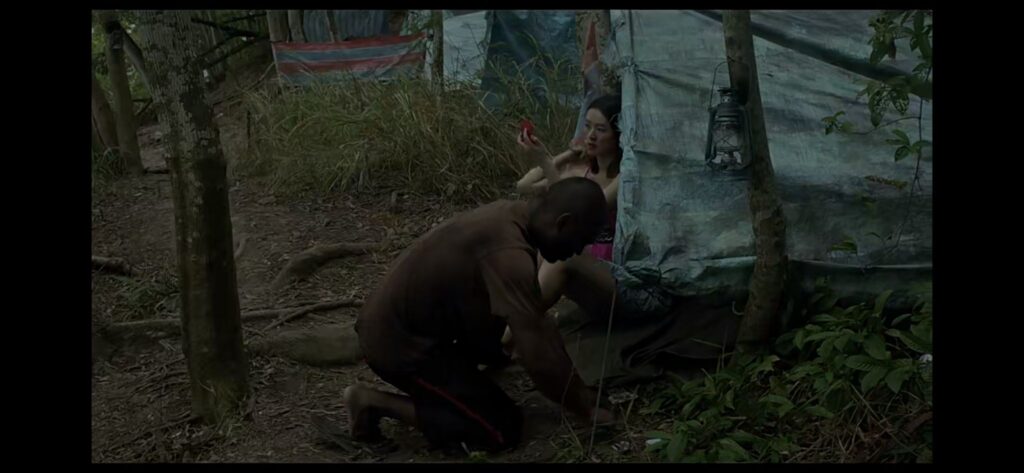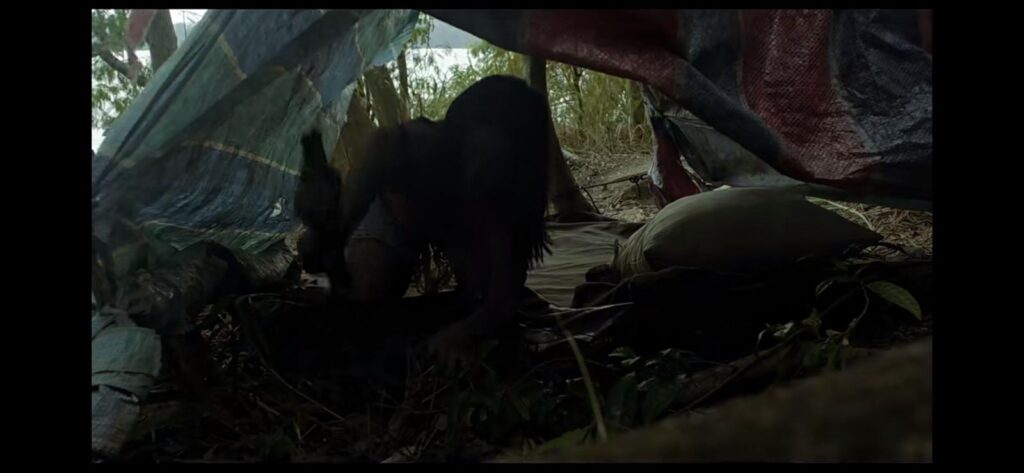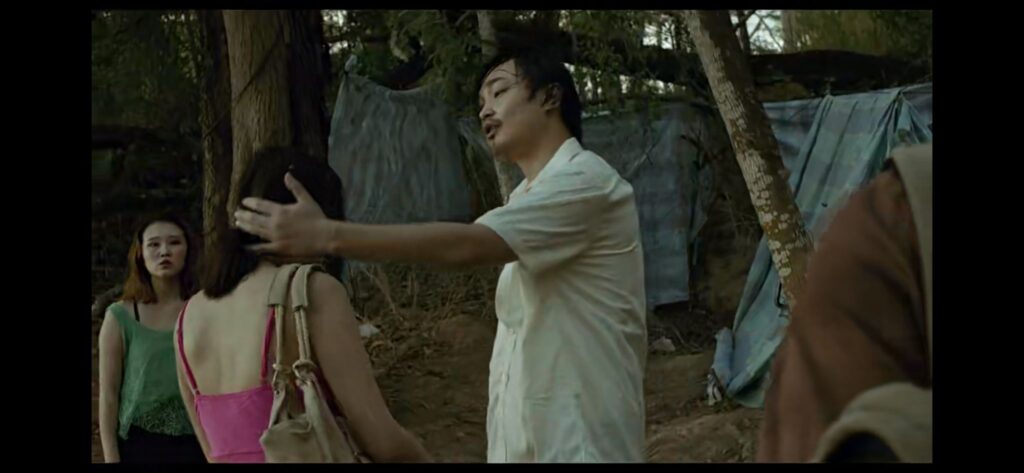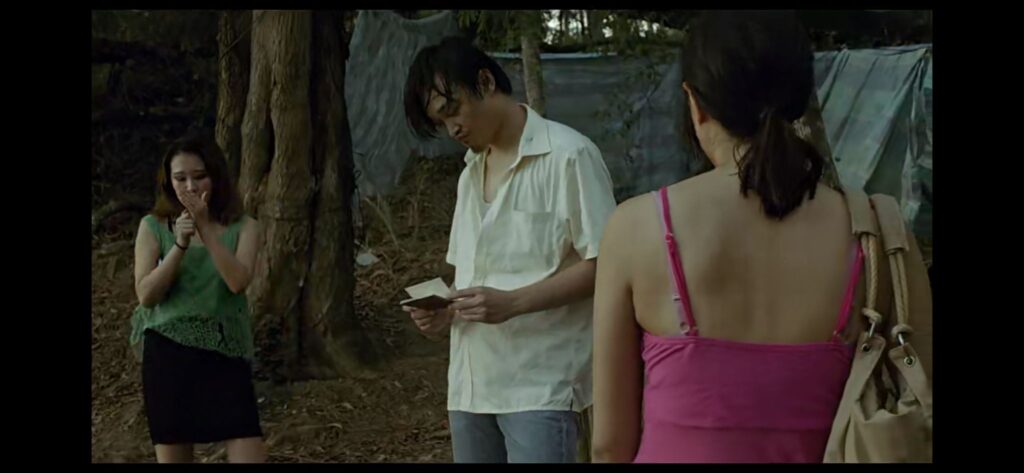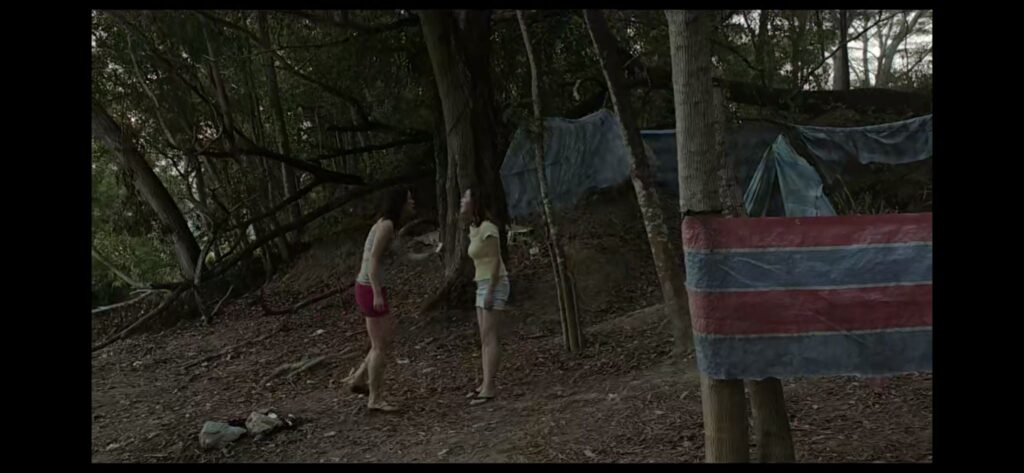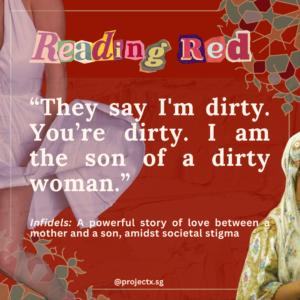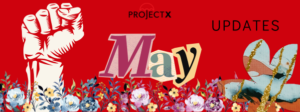CW: Sex, Coercion and Sexual Assault, Some Physical Violence
A Yellow Bird (2016) is a searingly realistic portrayal of how it feels to live on the fringes of society. The film follows Siva Sudhakar, a Singaporean man who has just been released from prison. Depicted as an anti-hero, he is reactive and relentless in his search for his wife and daughter. Oppressively dreary and morose, the film drastically paints a reality that incarcerates the individual, even as he is physically liberated.
Enter Chen Chen, a funeral mourner turned sex worker with whom Siva connects with– she is compelled by the thought of her daughter back in China to earn more money.
The two characters are intertwined inexplicably. Neither of them speak the other’s language yet find solace in each other
Viewers, however, are left wondering about the authenticity of their connection and left wanting, with the seemingly inconsequential and ephemeral feature of Chen Chen’s character.
Setting the Scene: The Jungle Brothel
We are introduced to the jungle, an unfamiliar and almost bewildering arena where Chen Chen works. While the concept may sound new to those who have little knowledge of the industry, jungle brothels have been around for a long time.
The film presents the jungle as a liminal space, separate from the laws that govern the oppressive city. For Siva, it is a space for him to escape the reality of his rejection from both his family and the state. For Chen Chen, it is a space where she can earn money, unbound by laws that restrict her earning capacity. The law eventually catches up to her during a police raid late one night.
The Sex Worker as Character
It is made clear that financial incentive drives many of Chen Chen’s actions; in multiple scenes she is seen to stress over her inability to earn more to send back to her daughter. In one scene, she reveals herself to Siva, regardless of his ability to understand her– she tells him of her aspirations for her daughter to lead a happy life, and her willingness to sacrifice herself to that end.
The film presents sex workas a form of labour just like any other. It humanises the sex worker, as an individual with a past, present and future; dreams she aspires towards.
The Pimp and Assault
A scene that may otherwise be glossed over easily is of much importance here. In it, the pimp dictates that 60% of Chen Chen’s earnings will go to him, before dragging her over to a tent, saying he will need to “test the goods first, before knowing if she can please the customers”.
While she seems unwilling to do so, Chen Chen does not express her displeasure, even telling Siva, who has agreed to be her bodyguard, to step down. Such a scene demonstrates the immense power differential between a sex worker and the pimp. We have received similar reports of such abuses of power, where pimps have used their position to get “free sex”. This is coercion, and a form of sexual assault.
Community (or the lack thereof)
The film paints a competitive, antagonistic picture of the relational dynamics between sex workers. When Chen Chen first approaches the pimp for work, she is met with hostility and anger, courtesy of the other sex worker who works there. They are portrayed at odds and wary of the other, with Chen Chen confronting her immediately when she realised the money she had been saving up to send back home was missing.
Food for thought
Many of the scenes shot in the film emphasise the ways in which oppression, alienation and despair are propagated through the spaces people move about.
What are some ways in which the physical arenas we occupy dictate the kinds of people we interact with, and thus the way we view and interact with others?





